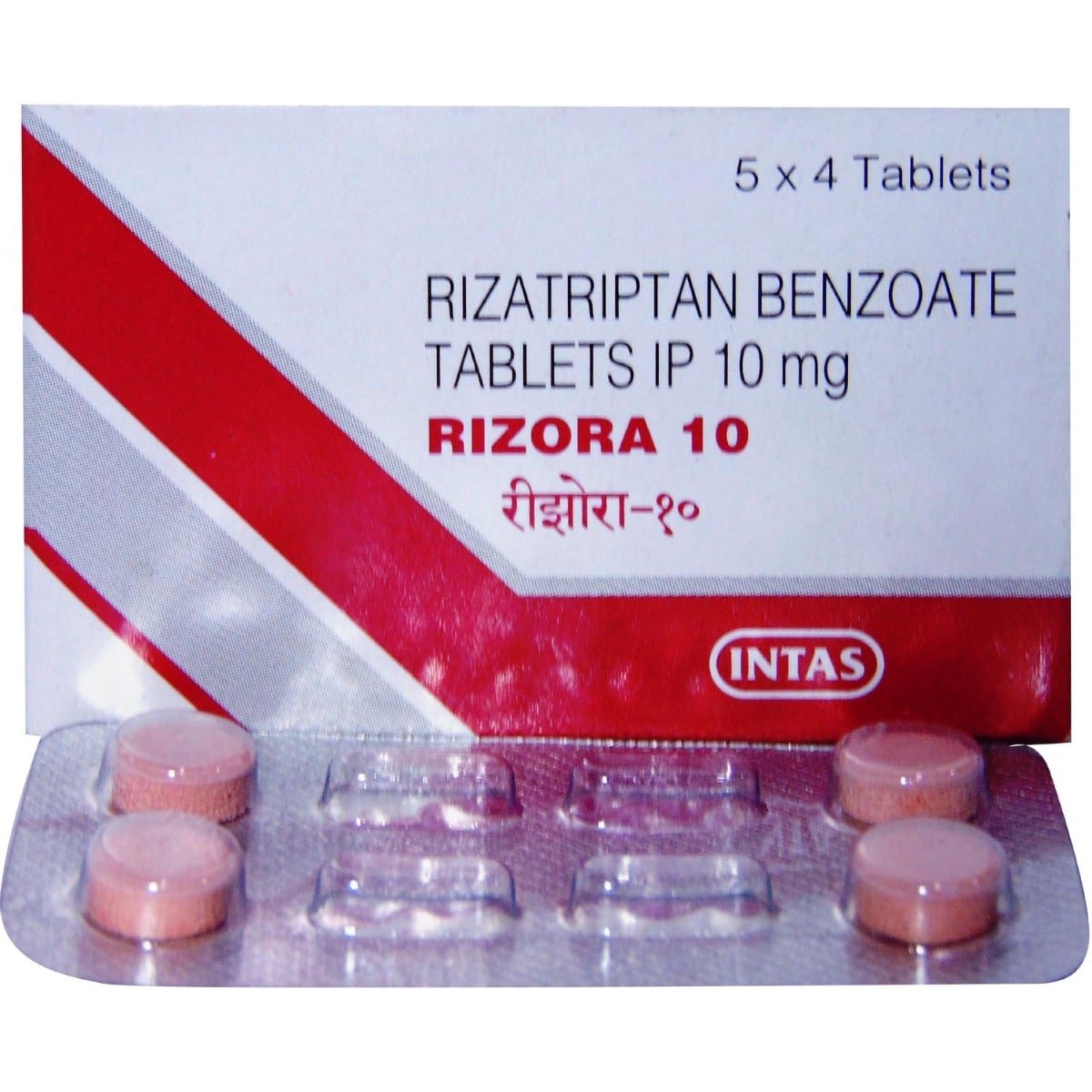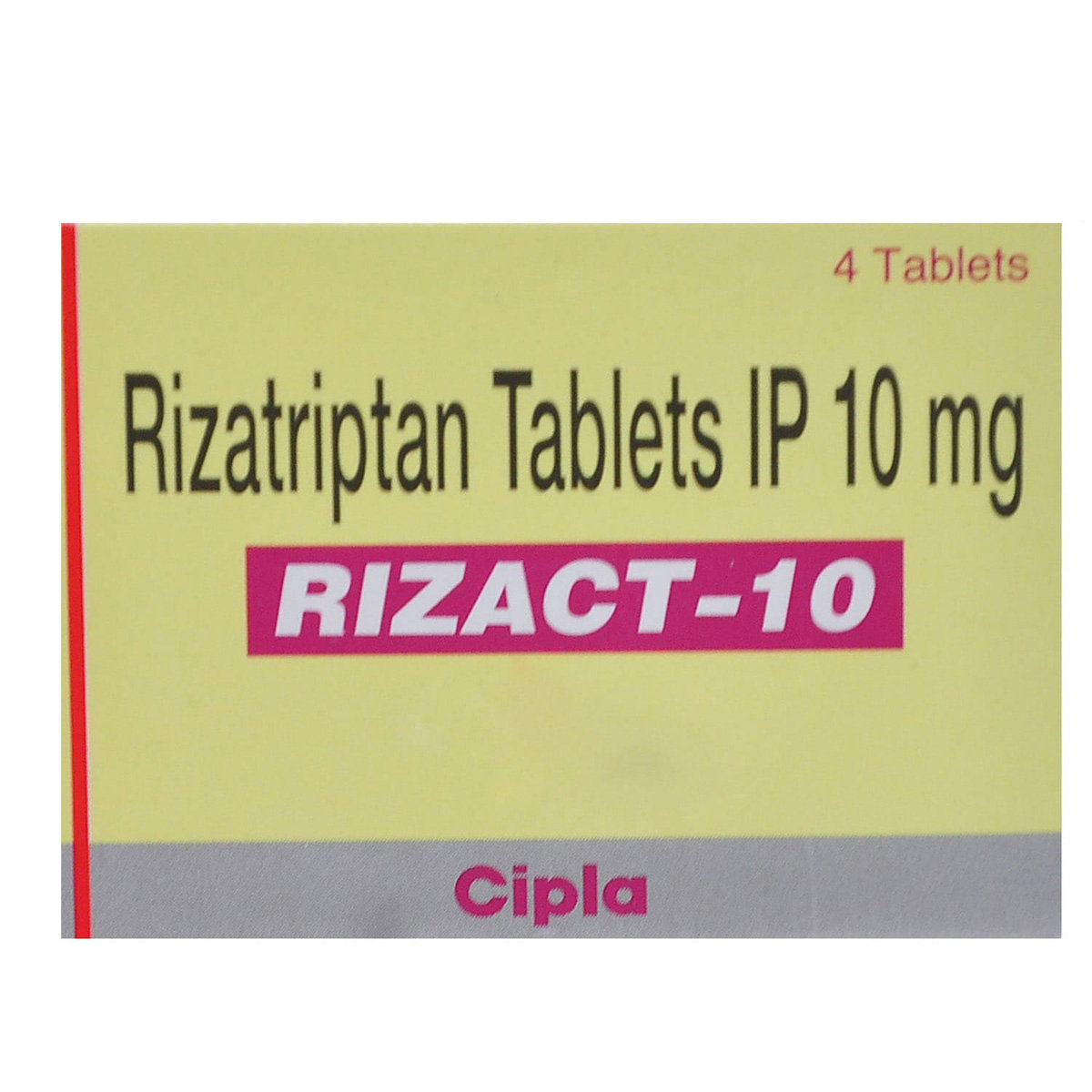Rizora 10 Tablet



MRP ₹374
(Inclusive of all Taxes)
₹56.1 Cashback (15%)
know your delivery time
Provide Delivery Location
Composition :
Manufacturer/Marketer :
Consume Type :
Expires on or after :
Return Policy :

Secure Payment

Trusted by 8 Crore Indians

Genuine Products
Therapeutic Class
Country of origin
Manufacturer/Marketer address
Author Details
We provide you with authentic, trustworthy and relevant information
Disclaimer
Alcohol
Safe if prescribed
Avoid consumption of alcohol while taking Rizora 10 Tablet as it may cause increased drowsiness.
Pregnancy
Consult your doctor
Please consult your doctor if you are pregnant or if you have any concerns regarding this. Your doctor will prescribe Rizora 10 Tablet only if the benefits outweigh the risks.
Breast Feeding
Consult your doctor
Breastfeeding should be avoided for 24hours after the treatment. Please consult your doctor if you have any concerns regarding this.
Driving
Safe if prescribed
Rizora 10 Tablet may cause dizziness and drowsiness. Do not drive or operate machinery unless you are alert.
Liver
Consult your doctor
Rizora 10 Tablet should not be taken if you have severe liver problems. Please consult your doctor if you have a liver impairment or any concerns regarding this.
Kidney
Consult your doctor
Rizora 10 Tablet should not be taken if you have severe kidney problems. Please consult your doctor if you have kidney impairment or any concerns regarding this.
Children
Safe if prescribed
Rizora 10 Tablet is not recommended for children below 18 years as safety and effectiveness have not been established.
Product Substitutes
About Rizora 10 Tablet
Rizora 10 Tablet belongs to a group of medicines called selective serotonin 5-HT receptor agonists used to treat migraine with or without an aura. Migraine is a neurological condition that is characterised by intense pulsating, throbbing, pounding, debilitating headache, which usually occurs on one side of the head; however, it can occur on both sides or shift.
Rizora 10 Tablet contains ‘Rizatriptan’ which works by narrowing the blood vessels in the brain, thereby providing relief from migraine headaches. Rizora 10 Tablet helps decrease the substances in the body which can trigger headache pain, sensitivity to light and sound, nausea, and other migraine symptoms. Rizora 10 Tablet does not prevent or reduce the number of attacks; it only helps in treating a headache that has already begun.
You are advised to take Rizora 10 Tablet for as long as your doctor has prescribed it for you, depending on your medical condition. In some cases, you may experience certain common side effects such as dizziness, tiredness, drowsiness, dry mouth, vomiting, diarrhoea, and pain in the abdomen or chest. Most of these side effects do not require medical attention and will resolve gradually over time. However, you are advised to talk to your doctor if you experience these side effects persistently.
Consult your doctor if you are pregnant or planning for pregnancy. Avoid breastfeeding for 24 hours after the treatment with Rizora 10 Tablet. Rizora 10 Tablet may cause dizziness and drowsiness, so drive only if you are alert. Rizora 10 Tablet is not recommended for children as safety and effectiveness have not been established. Avoid consuming alcohol with Rizora 10 Tablet as it could lead to increased drowsiness. Keep your doctor informed about your health condition and medicines to rule out any side effects.
Uses of Rizora 10 Tablet
Medicinal Benefits Mweb
Key Benefits
Rizora 10 Tablet belongs to a group of medicines called selective serotonin 5-HT receptor agonists used to treat migraine with or without an aura. Rizora 10 Tablet works by narrowing the blood vessels in the brain, thereby providing relief from migraine headaches. Rizora 10 Tablet helps decrease the substances in the body which can trigger headache pain, sensitivity to light and sound, nausea, and other migraine symptoms.
Directions for Use
Side Effects of Rizora 10 Tablet
- Dizziness
- Tiredness
- Drowsiness
- Dry mouth
- Vomiting
- Diarrhoea
- Pain in abdomen or chest
Drug Warnings
Do not take Rizora 10 Tablet if you are allergic to any of its components; if you have mild/severe high blood pressure which is not controlled by medication, heart problems such as heart attack or pain in the chest, severe liver or kidney problems, if you have had a stroke, blockage problem with the arteries, if you are taking MAOI or have taken them in the last 14days, if you are taking ergotamine-containing medicines or any other medicines for migraine. Inform your doctor if you have heart disease, diabetes, high blood pressure, a problem with heartbeats, liver or kidney problems. Consult your doctor if you are pregnant or planning for pregnancy. Avoid breastfeeding for 24 hours after the treatment with Rizora 10 Tablet. Rizora 10 Tablet may cause dizziness and drowsiness, so drive only if you are alert. Rizora 10 Tablet is not recommended for children as safety and effectiveness have not been established. Avoid consuming alcohol with Rizora 10 Tablet as it could lead to increased drowsiness.
Drug-Drug Interactions
Drug-Drug Interactions
Login/Sign Up
When Rizora 10 Tablet is taken with Tranylcypromine can increase the blood levels of Riztriptan and also high blood pressure.
How to manage the interaction:
Taking Tranylcypromine with Rizora 10 Tablet is not recommended as it can possibly result in an interaction, it can be taken if your doctor has advised it. However, consult your doctor immediately If you experience symptoms such as severe abdominal pain, nausea, vomiting, numbness or tingling, muscle pain or weakness, blue or purple discoloration of fingers or toes, pale or cold skin, chest pain or tightness, irregular heartbeat, severe headache, shortness of breath, blurred vision, confusion, and/or slurred speech. Do not discontinue any medications without consulting a doctor.
Combining Ergotamine with Rizora 10 Tablet can increase the risk of high blood pressure.
How to manage the interaction:
Taking Rizora 10 Tablet with Ergotamine is not recommended as it can possibly result in an interaction, it can be taken if your doctor has advised it. However, consult your doctor immediately If you experience symptoms such as severe abdominal pain, nausea, vomiting, numbness or tingling, muscle pain or weakness, blue or purple discoloration of fingers or toes, pale or cold skin, chest pain or tightness, irregular heartbeat, severe headache, shortness of breath, blurred vision, confusion, and/or slurred speech. Do not discontinue any medications without consulting a doctor.
Combining Phenelzine with Rizora 10 Tablet can increase the risk of high blood pressure.
How to manage the interaction:
Taking Rizora 10 Tablet with Phenelzine is not recommended as it can possibly result in an interaction, it can be taken if your doctor has advised it. However, consult a doctor immediately if you experience any symptoms such as severe abdominal pain, nausea, vomiting, numbness or tingling, muscle pain or weakness, blue or purple discoloration of fingers or toes, pale or cold skin, chest pain or tightness, irregular heartbeat, severe headache, shortness of breath, blurred vision, confusion, or slurred speech. Do not discontinue any medications without consulting a doctor.
Combining Dihydroergotamine with Rizora 10 Tablet can increase the risk of high blood pressure.
How to manage the interaction:
Taking Rizora 10 Tablet with Dihydroergotamine is not recommended as it can possibly result in an interaction, it can be taken if your doctor has advised it. However, consult your doctor immediately If you experience symptoms such as severe abdominal pain, nausea, vomiting, numbness or tingling, muscle pain or weakness, blue or purple discoloration of fingers or toes, pale or cold skin, chest pain or tightness, irregular heartbeat, severe headache, shortness of breath, blurred vision, confusion, and/or slurred speech. Do not discontinue any medications without first consulting a doctor.
Combining Almotriptan with Rizora 10 Tablet can increase the risk of high blood pressure.
How to manage the interaction:
Taking Rizora 10 Tablet with Almotriptan is not recommended as it can possibly result in an interaction, it can be taken if your doctor has advised it. However, consult your doctor immediately If you experience symptoms such as severe abdominal pain, nausea, vomiting, numbness or tingling, muscle pain or weakness, blue or purple discoloration of fingers or toes, pale or cold skin, chest pain or tightness, irregular heartbeat, severe headache, shortness of breath, blurred vision, confusion, and/or slurred speech. Do not discontinue any medications without consulting a doctor.
Coadministration of bromocriptine with Rizora 10 Tablet can increase the risk of side effects such as high blood pressure and heart-related problems.
How to manage the interaction:
Although there is an interaction between bromocriptine and Rizora 10 Tablet, they can be taken together if prescribed by a doctor. However, consult a doctor if you experience abdominal pain, nausea, vomiting, numbness or tingling, muscle pain or weakness, blue or purple discoloration of fingers or toes, pale or cold skin, chest pain or tightness. Do not discontinue any medications without consulting a doctor.
Combining Eletriptan with Rizora 10 Tablet can increase the risk of high blood pressure.
How to manage the interaction:
Taking Rizora 10 Tablet with Eletriptan is not recommended as it can possibly result in an interaction, it can be taken if your doctor has advised it. However, consult your doctor immediately If you experience symptoms such as severe abdominal pain, nausea, vomiting, numbness or tingling, muscle pain or weakness, blue or purple discoloration of fingers or toes, pale or cold skin, chest pain or tightness, irregular heartbeat, severe headache, shortness of breath, blurred vision, confusion, and/or slurred speech. Do not discontinue any medications without consulting a doctor.
When Rizora 10 Tablet is taken with Procarbazine can increase the risk of high blood pressure.
How to manage the interaction:
Taking Rizora 10 Tablet with Procarbazine is not recommended as it can possibly result in an interaction, it can be taken if your doctor has advised it. However, consult your doctor immediately If you experience symptoms such as severe abdominal pain, nausea, vomiting, numbness or tingling, muscle pain or weakness, blue or purple discoloration of fingers or toes, pale or cold skin, chest pain or tightness, irregular heartbeat, severe headache, shortness of breath, blurred vision, confusion, and/or slurred speech. Do not discontinue any medications without consulting a doctor.
Combining Rizora 10 Tablet with Zolmitriptan can increase the risk of high blood pressure.
How to manage the interaction:
Taking Rizora 10 Tablet with Zolmitriptan is not recommended as it can possibly result in an interaction, it can be taken if your doctor has advised it. However, consult your doctor immediately If you experience symptoms such as severe abdominal pain, nausea, vomiting, numbness or tingling, muscle pain or weakness, blue or purple discoloration of fingers or toes, pale or cold skin, chest pain or tightness, irregular heartbeat, severe headache, shortness of breath, blurred vision, confusion, and/or slurred speech. Do not discontinue any medications without consulting a doctor.
Combining Cabergoline with Rizora 10 Tablet can increase the risk of side effects.
How to manage the interaction:
Taking Rizora 10 Tablet with Cabergoline is not recommended as it can possibly result in an interaction, it can be taken if your doctor has advised it. However, consult your doctor immediately If you experience symptoms such as severe abdominal pain, nausea, vomiting, numbness or tingling, muscle pain or weakness, blue or purple discoloration of fingers or toes, pale or cold skin, chest pain or tightness, irregular heartbeat, severe headache, shortness of breath, blurred vision, confusion, and/or slurred speech. Do not discontinue any medications without consulting a doctor.
Drug-Food Interactions
Drug-Food Interactions
Login/Sign Up
Drug-Diseases Interactions
Drug-Diseases Interactions
Login/Sign Up
Drug-Drug Interactions Checker List
- DULOXETINE
- FLUOXETINE
- SERTRALINE
- ESCITALOPRAM
- VENLAFAXINE
- ACETAMINOPHEN+HYDROCODONE
- ONDANSETRON
- SUMATRIPTAN
- NARATRIPTAN
- ZOLMITRIPTAN
- MOCLOBEMIDE
- PHENELZINE
- TRANYLCYPROMINE
- LINEZOLID
Habit Forming
Diet & Lifestyle Advise
- Maintain a healthy diet and exercise regularly as it helps in improving overall health and boosts self-esteem.
- Avoid bright lights, loud noise, and extreme temperatures.
- Perform meditation and yoga. This helps in relieving stress and provides relaxation.
- Follow a regular sleep pattern to improve the amount and quality of sleep you get.
- Massage your scalp to ease the pain.
- Lie down in a quiet, dark room.
- Place a cold cloth over your forehead or neck.
- Avoid smoking, alcohol, and caffeinated drinks.
- Learn what triggers your migraine and try avoiding them.
- Stay hydrated. Drink plenty of fluids.
- Learn relaxation skills as they help in reducing stress.
All Substitutes & Brand Comparisons
RX
Out of StockRITZA 10MG TABLET
Natco Pharma Ltd
₹195
(₹29.25 per unit)
65% CHEAPERRX
Out of StockRizatrip Odt 10Mg Tablet
Geno Pharmaceuticals Pvt Ltd
₹40.29
(₹36.26 per unit)
56% CHEAPERRX
Out of StockRizatop 10mg Tablet
₹450
(₹40.5 per unit)
51% CHEAPER

Have a query?
Buy best C.n.s Drugs products by
Intas Pharmaceuticals Ltd
Sun Pharmaceutical Industries Ltd
Torrent Pharmaceuticals Ltd
Alkem Laboratories Ltd
Abbott India Ltd
Cipla Ltd
Alteus Biogenics Pvt Ltd
Micro Labs Ltd
Lupin Ltd
Ipca Laboratories Ltd
D D Pharmaceuticals Pvt Ltd
Icon Life Sciences
Mankind Pharma Pvt Ltd
Tripada Healthcare Pvt Ltd
Arinna Lifesciences Ltd
Linux Laboratories Pvt Ltd
East West Pharma India Pvt Ltd
La Renon Healthcare Pvt Ltd
Talent India Pvt Ltd
Tas Med India Pvt Ltd
Zydus Healthcare Ltd
Cnx Health Care Pvt Ltd
Eris Life Sciences Ltd
Leeford Healthcare Ltd
Emcure Pharmaceuticals Ltd
Macleods Pharmaceuticals Ltd
Sigmund Promedica
Aristo Pharmaceuticals Pvt Ltd
Dr Reddy's Laboratories Ltd
Troikaa Pharmaceuticals Ltd
Consern Pharma Ltd
Zydus Cadila
Shine Pharmaceuticals Ltd
Wockhardt Ltd
Ardent Life Sciences Pvt Ltd
Crescent Formulations Pvt Ltd
Theo Pharma Pvt Ltd
Reliance Formulation Pvt Ltd
Ikon Pharmaceuticals Pvt Ltd
Propel Healthcare
Neon Laboratories Ltd
Jagsam Pharma
Msn Laboratories Pvt Ltd
Morepen Laboratories Ltd
Pulse Pharmaceuticals
Sanofi India Ltd
Med Manor Organics Pvt Ltd
Hetero Healthcare Pvt Ltd
Novartis India Ltd
Crescent Therapeutics Ltd
Elder Pharmaceuticals Ltd
Solvate Laboratories Pvt Ltd
Akumentis Healthcare Ltd
Mova Pharmaceutical Pvt Ltd
Psyco Remedies Ltd
Tripada Lifecare Pvt Ltd
Ajanta Pharma Ltd
Cyrus Remedies Pvt Ltd
Medishri Healthcare Pvt Ltd
Cadila Healthcare Ltd
Glenmark Pharmaceuticals Ltd
Matteo Health Care Pvt Ltd
Hbc Life Sciences Pvt Ltd
Lyf Healthcare
Matias Healthcare Pvt Ltd
Mesmer Pharmaceuticals
Alembic Pharmaceuticals Ltd
Capital Pharma
Crescent Pharmaceuticals
Medopharm Pvt Ltd
Alniche Life Sciences Pvt Ltd
Kivi Labs Ltd
Talin Remedies Pvt Ltd
USV Pvt Ltd
Quince Lifesciences Pvt Ltd
Solis Pharmaceuticals
Infivis Life Care
Zuventus Healthcare Ltd
Cadila Pharmaceuticals Ltd
Pfizer Ltd
Wallace Pharmaceuticals Pvt Ltd
A N Pharmacia Laboratories Pvt Ltd
Blue Cross Laboratories Pvt Ltd
Jenburkt Pharmaceuticals Ltd
Lia Life Sciences Pvt Ltd
Mano Pharma
Medley Pharmaceuticals Ltd
Primus Remedies Pvt Ltd
FDC Ltd
Maneesh Pharmaceuticals Ltd
Apex Laboratories Pvt Ltd
Gagnant Healthcare Pvt Ltd
Ozone Pharmaceuticals Ltd
RPG Life Sciences Ltd
Strides Shasun Ltd
Unichem International
GlaxoSmithKline Pharmaceuticals Ltd
Kuresys Labs Pvt Ltd
LA Pharma
Trion Pharma India Llp

_0.jpg?tr=q-85)








